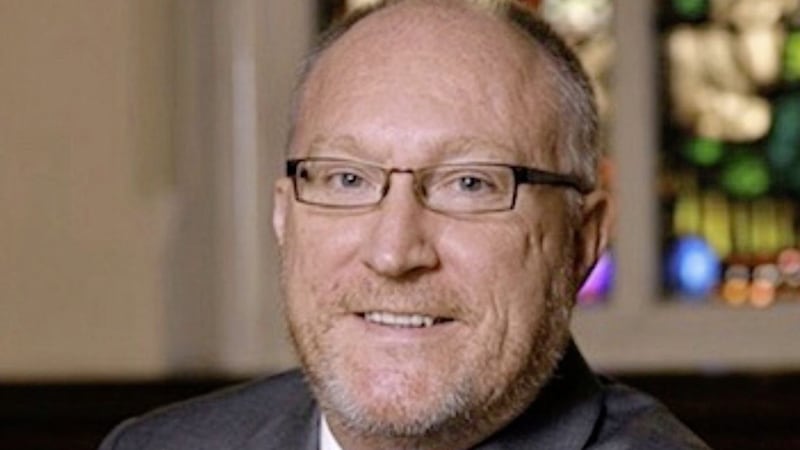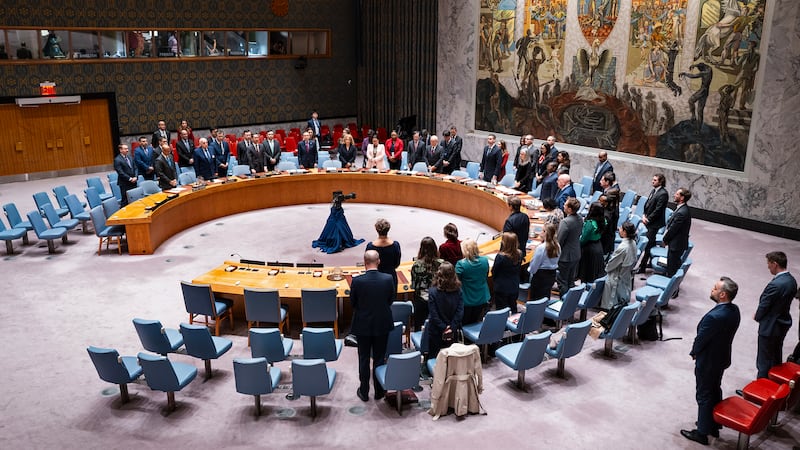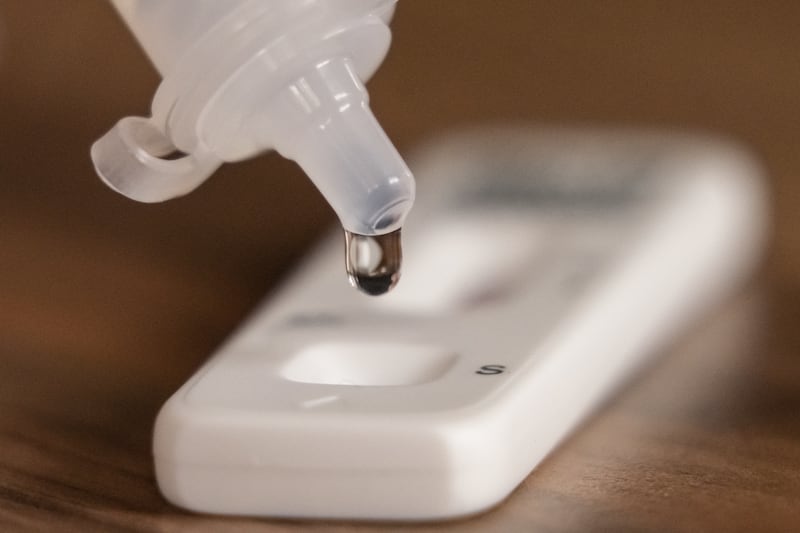Principal of St Mary's University College, Professor Peter Finn reflects on the unusual times we are in. Normally, he writes, students would be completing placement learning but now St Mary's and other higher education institutions are having to use all their creativity to craft a new educational experiences for students.
FOR students it would mark the end of weeks spent in schools where they have been able to learn from teachers, experience wider school life, implement their own teaching plans, prepare resources and engage with young learners.
For Liberal Arts students, it would be the end of six weeks learning from the world of business, shadowing key workers and keeping a learning journal.
College tutors would be making their final visits to schools and organisations to support, advise and assess students' work.
Our Study Abroad students would be finalising assignments and arranging to travel home for Easter, or meet their fellow students in Vienna, Paris or Madrid.
But these are not normal times. We find ourselves living in the midst of a pandemic which has fundamentally changed our former fast moving and globalised world. Students and staff are now working from home. Thankfully, all our students who embarked on international learning opportunities arrived back to avoid being stranded. What should have been one of the busiest times in the academic life of our college is now eerily quiet.
Learning programmes have gone online and we are in a mode of work to which we are largely unaccustomed.
College communication and dialogue continue, and our students and staff are using whatever means they can to praise the work of doctors, nurses and healthcare workers. There is also praise for the teaching profession, supporting NHS and other key workers and at the same time providing resources and online tuition so pupils can learn at home.
In my own role as an accountable officer, I wish to commend the civil service for keeping essential services going and the Department for the Economy in particular for the way it has liaised with St Mary's.
In recent years, community engagement has become an integral element of the role that St Mary's performs. Readers will know about our partnerships in events such as the Easter School with the West Belfast Partnership Board or our engagement with this newspaper on the Young News Readers Project. Unfortunately, these activities are suspended. However, new circumstances bring new opportunities, and we look forward to assisting the health authorities as best we can, given the college's close proximity to the Royal Victoria Hospital.
Education embraces a great variety of learning. With the end of business-as-usual in schools, colleges and universities, the news outlets are now centre-stage in `educating' our population about the pandemic and what we should and should not do. Newspapers as well as radio and television have a crucial role.
St Mary's is an institution of higher education in the Catholic tradition. It is part of a network of over 1,000 Catholic universities and colleges worldwide. We all share a belief in the power of prayer and on the St Mary's website www.smucb.ac.uk readers will see a prayer by Pope Francis to our Blessed Lady, patron of the college. It begins: "O Mary, you shine continuously along our journey as a sign of salvation and hope."
Hope is a vital factor in education at this time. Hope stirs positive feelings about the present and the future. It generates high levels of motivation and optimism just when we need it. We have heard the term `unprecedented' being used frequently to describe the pandemic and its impact. Rather than succumbing to the fear of the unknown, education can enable us to band together, draw strength from our convictions and use creativity for the common good.
St Mary's and other higher education institutions are now using all their conviction and creativity to craft new educational experiences for students.
Dr Ciarán Kearney, who provides sports psychology support for our senior Gaelic football team, had an interesting piece in the Irish Examiner. He focused on the language being used today and stated: "There is a lot of talk about danger and threat at the minute, we need to push that back. We need urgency without a constant sense of emergency."
That sense of urgency is applicable to the task in providing a service of higher education. That service involves continuing the delivery of teaching and supporting students in preparing for and undertaking non-traditional assessment.
There is some evidence that students are experiencing stress. They are experiencing higher education in a very different way. The enjoyable social aspect has been removed. They are worried about completing courses and final year students have concerns about graduation.
Students have paid tuition fees for the year and we are bound legally to provide teaching and assessment to enable them to progress to the following year of their degree or to graduate. I also believe we have a moral duty to provide the best possible service we can. There is no tried and tested formula. It is not a case of business as usual.
We have to be creative and flexible, and for me this means accelerating our adoption of digital approaches. The necessary digital infrastructure is already in place. There is no room for reluctance or skepticism in the new circumstances because traditional teaching, assessment and student support will not be possible for the rest of this academic year.
We also have to ensure that students receive pastoral support. Two-way online communications between staff and students as well as good information briefings online are key.
With a future looking approach and sense of hope up-front in their minds, students can make a significant contribution in our time of need. First up, students can demonstrate how wrong was the claim that closing schools and universities would lead to increased social interaction, suggesting young people would congregate in groups. Students can demonstrate their civic responsibility by fulfilling their full-time role as remote-learners, or by offering their services to the principals making their educational institutions available to the children of key workers.
St Mary's will also be fulfilling its appointed role to ensure that the students can continue their work online, in full compliance with the need for social distancing.
In Initial Teacher Education, St Mary's acted with urgency, and now has arrangements to facilitate the learning required by BEd and PGCE students to complete their courses this academic year.
There will be a cohort of newly qualified teachers ready to enter the teaching profession in a few months. It will have experienced something entirely unprecedented, but these new teachers will have made the necessary adjustments and demonstrated their adaptability to enable completion of their programmes of study. They will be learning leaders, ready to contribute to the education of young people in our schools in a spirit of hope for the future.








